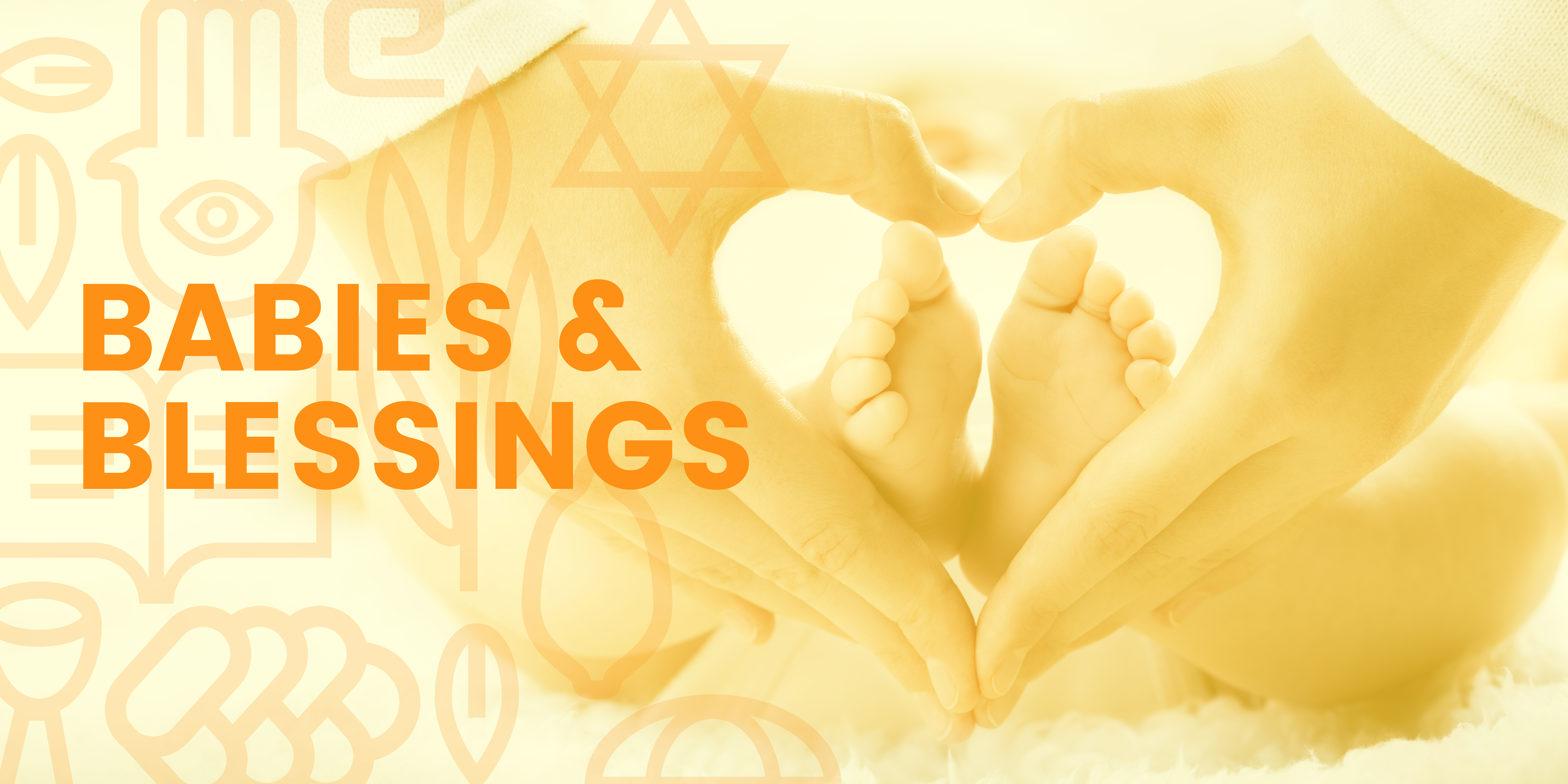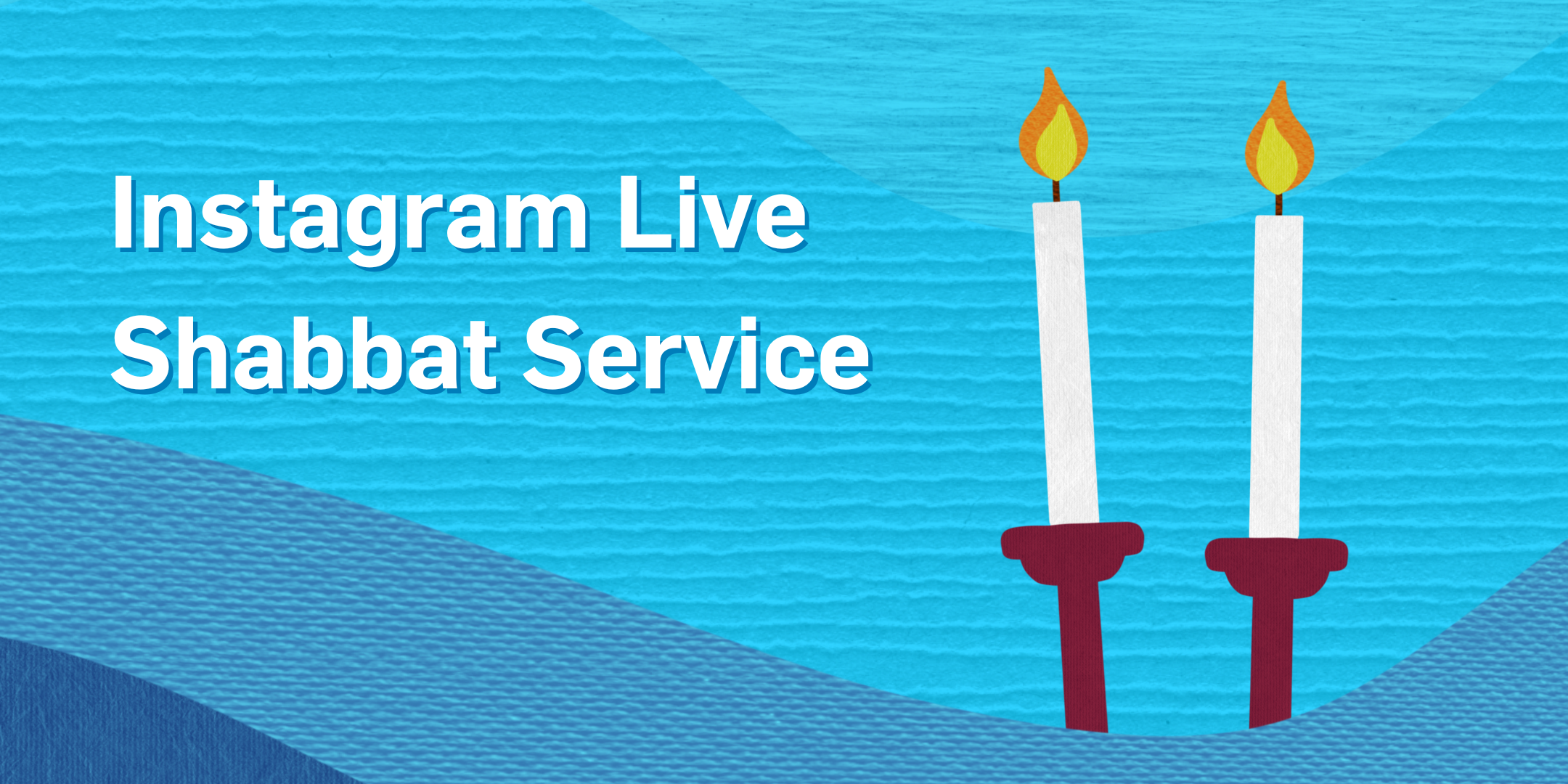In this class led by Rabbi Deena, babies and their caregivers gather weekly to sing songs, read stories, and dance together. This class is a wonderful introduction to JCP’s preschool and Jewish life programs. The Winter/Spring 2024 session meets from 11:45am-12:30pm on Fridays, January 19 to May 17. Register here.
Blog
Instagram Live Shabbat Service
Join Rabbi Deena and Musician-in-Residence Molly Rose on Instagram Live to celebrate Shabbat at 6:00 p.m.
Friday Evening Shabbat Service with HSP Pre-K and Kindergarten Learners
Join Rabbi Deena and our Musician-in-Residence Molly Rose at 146 Duane Street to celebrate Shabbat at 6:00 p.m. Our Hebrew School Project’s Pre-K and kindergarten learners will be joining the service.
Friday Evening Shabbat Service with HSP First Graders
Join Rabbi Deena and our Musician-in-Residence Molly Rose at 146 Duane Street to celebrate Shabbat at 6:00 p.m. Our Hebrew School Project’s first graders will be joining the service.
Instagram Live Shabbat Service
Join Rabbi Deena on Instagram Live to celebrate Shabbat at 6:00 p.m.
Instagram Live Shabbat Service
Join Rabbi Sam on Instagram Live to celebrate Shabbat at 6:00 p.m.
Friday Evening Shabbat Service
Join Rabbi Deena Silverstone and Musician-in-Residence Molly Rose Hoenig to celebrate Shabbat at 6:00 p.m, located at 146 Duane Street.
Friday Evening Shabbat Service
Join Rabbi Sam Frank and Musician-in-Residence Molly Rose Hoenig to celebrate Shabbat at 6:00 p.m, located at 146 Duane Street.
A Generous Heart
This week’s Torah portion is all about gifts. When we meet our Israelites, they’ve escaped Egypt and are in the wilderness. They’re figuring out the groove of their new life, and God gives them a task. God says to Moses:
דַּבֵּר֙ אֶל־בְּנֵ֣י יִשְׂרָאֵ֔ל וְיִקְחוּ־לִ֖י תְּרוּמָ֑ה מֵאֵ֤ת כָּל־אִישׁ֙ אֲשֶׁ֣ר יִדְּבֶ֣נּוּ לִבּ֔וֹ תִּקְח֖וּ אֶת־תְּרוּמָתִֽי׃
“Speak to the Israelites, telling them to bring me gifts. From each person whose heart is so moved, bring gifts to me.”
And then God describes the gifts that God wants: gold, silver, fine linens, and oils… God has expensive taste! These are the types of gifts that we save up for, and give on big occasions, or that we account for as we write our wills.
God wants these gifts in order to create a mikdash, a sanctuary. The mikdash is a place of supreme holiness, Rashi tells us. This holy place will be God’s house.
It’s both hard and easy to imagine giving this type of gift. Giving can be easy when a friend or family member is raising money for cancer research, or engaging in social action, or some cause that is meaningful to us. Or giving can be easy because we simply like the person who asked us. In other words, when we feel connected to one another, and a larger sacred mission, our hearts are moved, and we open our hands to give.
Yet this feeling of connection is not a given, and even when we do feel connected, it doesn’t always mean that giving is easy. Sometimes, we know that it’s the right thing to give, and yet it can be painful to part ways with our hard-earned money, or with precious items.
Our sage Kohelet (Ecclesiastes) writes about what we do with our money. Kohelet teaches that hoarding money is “l’ra’ato” – for our own misfortune. Not only that, he says the money that we own here and now – is just in the here and now. “A person must depart just as they came, – as one comes out of their mother’s womb, so must we depart, naked as they came…” While Kohelet doesn’t specify that we should give all our money or wealth away, he does indicate that we don’t have to deny ourselves the pleasure of enjoying it.
Perhaps, the greatest pleasures are those which are shared. God doesn’t want to dwell in the mishkan because it’s a beautiful space, but because it was constructed from the offerings of our hearts. And while the mishkan is “God’s house,” it’s also where the Israelites would gather. This is what the Bridge to the Future campaign at JCP is all about: when we give from our hearts, we cultivate our generosity as a community. We create beauty – not only in the physical spaces where we gather, but also in our souls.
Let’s practice this generosity together, giving the gifts that come from our hearts.
Shabbat shalom,
Sam
To Obey and Understand
In last week’s Torah portion, Parashat Yitro, the Israelites received the Ten Commandments. In a booming voice, surrounded by thunder, lightning, and fire, God speaks directly to the people, giving them the first laws of the Torah upon which they will build their holy society.
But this direct encounter with God is too overwhelming for the Israelites, and they ask Moses to serve as the intermediary between themselves and God. They want to receive the laws, but they fear that they will die if they hear God’s voice again. So in this week’s Torah portion, Parashat Mishpatim (mishpatim means “rules”), Moses shares many of the laws that God commands the Israelites to follow.
This parasha is simultaneously one of the most beautiful and challenging in the entire Torah.
On the one hand, it contains some of the most noble laws of our sacred texts; ideals to which any society should aspire. We are instructed to be fair in our economic dealings, to return lost property, to be impartial in a court of law. We are commanded not to take bribes, not to spread false rumors, and—the commandment repeated most often in the Torah—not to oppress the widow, the stranger and the orphan (the most vulnerable members of society), because we were strangers in the Land of Egypt. These laws are timeless and should guide our own actions and communities with as much force as they did for our ancestors.
On the other hand, it also contains some of the most abhorrent and immoral laws of the Torah; it can be hard to believe that these are included in our most sacred text. We learn about the institution of slavery in Israelite society…this is after the Israelites escaped from over 400 years of oppression in Egypt. We also learn about the act of selling women as brides and the violent conquest of other peoples.
And there are laws in this Torah portion whose morality is still being debated in our modern society. The verse of the Torah from which many Jewish thinkers, both ancient and modern, derive permission for people to terminate pregnancies comes from this parasha. And though we learn about the importance of respecting our parents, a noble law indeed, the Torah teaches that disrespecting one’s parents leads to the death penalty. Abortion and capital punishment: two topics from this parasha that are hotly debated in our public sphere.
Modern readers of the Torah are in a unique position. How do we read and honor our sacred text while also adhering to our contemporary values? We have to read carefully to decide which pieces are timeless wisdom and which are products of a particular time and place, and need to be changed or updated.
But this challenge did not originate in the modern age. The ancient Rabbis underwent this same process of discernment. For example, this Torah portion teaches us the concept of “an eye for an eye.” But the Rabbis of the Talmud (in 500 CE) believe this is unjust, and interpret this expression to mean a requirement of monetary restitution, as opposed to bodily retribution, for an injury.
At the end of this Torah portion, the Israelites accept all of these laws, saying “Na’aseh V’Nishma — We will obey and we will understand.” It’s not enough for the Israelites to follow these commandments. They also need to study them, to critically engage with them, and to interpret them in a way that will lead to justice. This principle has shaped Judaism throughout the millennia, encouraging us to debate and ask questions “for the sake of heaven” in order to create positive outcomes and improve our world.
May we continue this sacred legacy.
Shabbat shalom,
Deena




